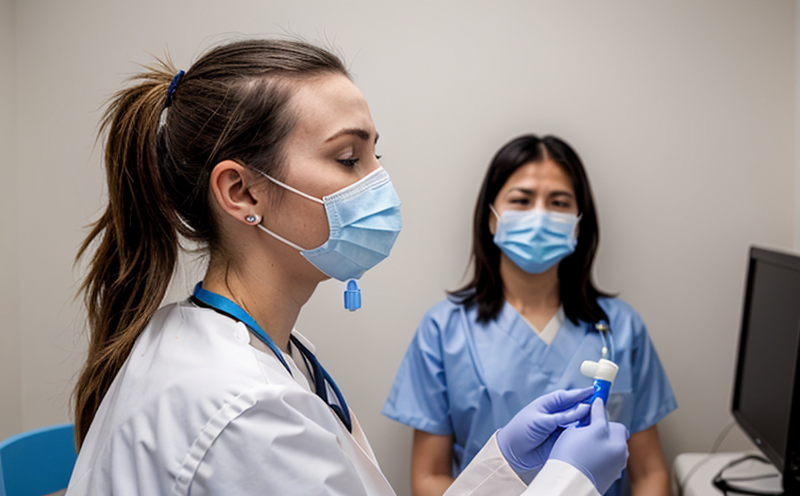Environmental Mold Spore Count Testing for Respiratory Risks
Environmental mold spore count testing is a critical tool in identifying potential respiratory risks within indoor environments. This service helps organizations and individuals understand the levels of mold spores present, which are microscopic fungi that can cause significant health issues when inhaled by susceptible individuals.
Mold spores are naturally occurring in outdoor environments but become problematic indoors when they reach high concentrations or under conditions conducive to their growth. Common triggers for mold proliferation include excess moisture, humidity, and poor ventilation. Environmental factors such as temperature, relative humidity, and the presence of organic materials can also influence the mold spore count.
Respiratory issues associated with elevated mold spore levels may range from mild discomfort to severe allergic reactions or exacerbation of pre-existing conditions like asthma. The Centers for Disease Control (CDC) recommends that indoor air quality should be comparable to outdoor air, and mold spore counts are a key metric in achieving this goal.
Our laboratory provides comprehensive testing services aimed at helping clients maintain healthy indoor environments by monitoring mold spore levels. This service is particularly beneficial for facilities like hospitals, schools, office buildings, and homes where maintaining optimal health standards is paramount.
The testing process involves collecting air samples over a specific period, followed by analysis to determine the concentration of viable mold spores present. The methodology we use ensures accurate representation of current conditions within the tested space. Once completed, our reports provide actionable insights that can guide remediation efforts if necessary.
Our laboratory adheres strictly to international standards such as ISO 14644-3 and ASTM E2532 for mold spore sampling and analysis. These guidelines ensure consistency across all tests conducted by our facility, thus providing reliable data upon which decisions can be based confidently.
| Applied Standards |
|---|
|
Quality and Reliability Assurance
The reliability of our mold spore count testing is paramount, ensuring that the data collected accurately reflects real-world conditions. To maintain this high standard, we have implemented stringent quality assurance protocols throughout every stage of sample collection and analysis.
- Certified Technicians: Our team comprises highly trained professionals who adhere to strict certification requirements set forth by relevant bodies.
- Calibrated Equipment: All instruments used in our laboratory are regularly calibrated against recognized standards to ensure precise measurements.
- Dedicated Facilities: We operate specialized laboratories designed specifically for mold spore testing, providing controlled environments that minimize contamination risks.
By upholding these practices, we guarantee the integrity and accuracy of all results produced. This commitment to excellence ensures that our clients receive reliable information they can trust when making important decisions regarding their indoor air quality.
Competitive Advantage and Market Impact
Our mold spore count testing service offers several competitive advantages for businesses operating in the healthcare, education, and residential sectors. By proactively managing environmental risks associated with mold exposure, organizations can significantly reduce the likelihood of costly disruptions due to health incidents.
- Preventive Measures: Regular monitoring allows early detection of potential issues before they escalate into major problems requiring extensive remediation efforts.
- Enhanced Reputation: Demonstrating a proactive approach towards maintaining superior indoor air quality enhances brand reputation and fosters customer trust.
- Compliance Assurance: Adherence to industry best practices ensures compliance with regulatory requirements, reducing legal risks associated with non-compliance.
In addition to these immediate benefits, implementing our mold spore count testing service contributes positively to broader market trends emphasizing sustainability and environmental responsibility. As more stakeholders prioritize these values, organizations that demonstrate leadership in this area will gain a competitive edge over their peers.





